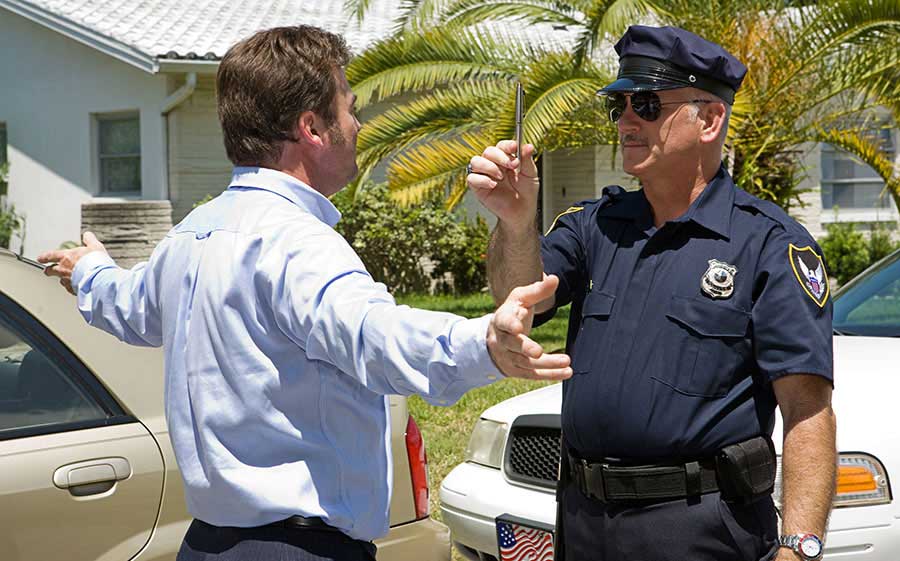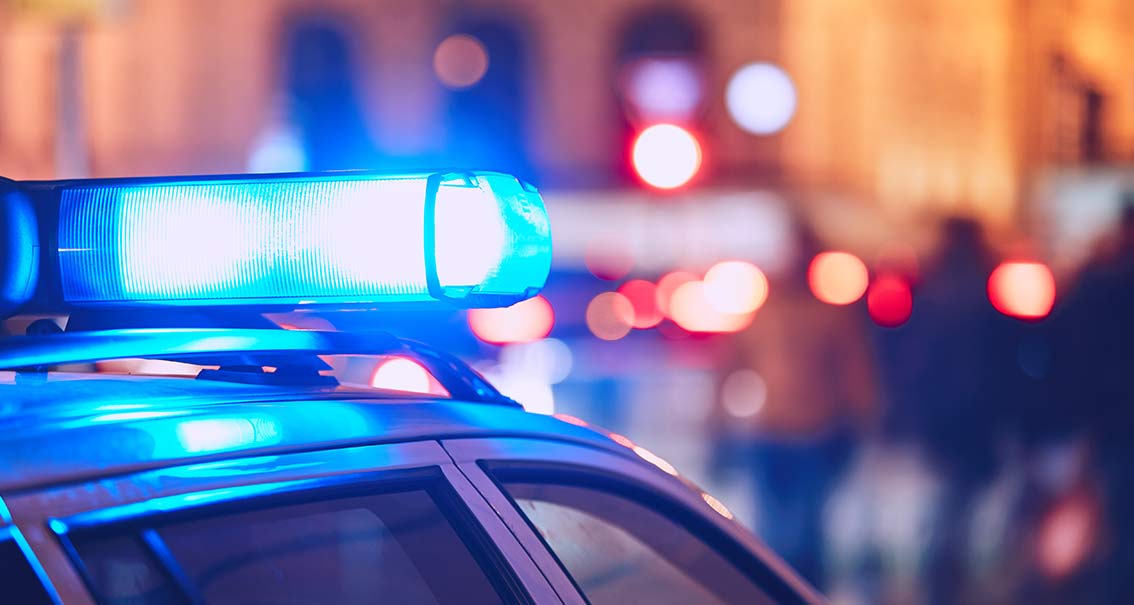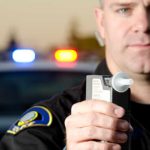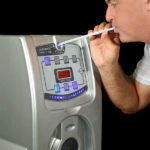Implied Consent Suspensions and Hardship Appeals
Refusing a Breath or Blood Test Can Result in an Implied Consent Suspension. An Implied Consent Suspension means you cannot drive anywhere legally for one year.

What happens if you refuse a breath test or a blood test?
If you are pulled over for suspected drunk driving, the officer generally requests that you participate in field sobriety tests, including a preliminary breath test (PBT). A PBT is a small device you blow into, and it checks your breath for alcohol content and estimates a level. The field sobriety tests can give the officer probable cause to arrest you. In most cases, as soon as you are asked to exit your car, you will be arrested at some point. Because the Standard Field Sobriety Tests (SFST) are designed to make you fail, it is generally better to respectfully decline to participate in these tests. What happens if you refuse a breath test in Michigan? You will get a $200 fine if the test is a PBT. If you refuse a chemical breath test, you stand a good chance of losing your driving privileges for one year without the expert assistance of a top-notch lawyer.
A PBT or preliminary breath test is NOT a chemical test; it is different from a “breathalyzer” or Intoxilyzer 9000 Test. If you refuse a PBT, you will probably be given a ticket for a civil infraction. Conversely, the police will ask you to consent to a blood or breath chemical test if you are arrested. If you refuse a chemical breath test, called an Intoxilyzer 9000 or breathalyzer, or a blood test, you will be issued an “implied consent violation.” An implied consent violation can result in a year-long, unrestricted suspension of your driver’s license.
Is refusing the PBT the same or different than refusing a chemical breath test?
If you are perceived to “fail” the field sobriety tests, the PBT level is estimated at .08 or above, or the officer believes you are under the influence based upon his experience, they will arrest you and take you to do a more formal breath or blood alcohol test, called a “chemical test.” A chemical test is done at the police station with a breathalyzer called an Intoxilyzer 9000, or they draw blood and send it in for testing.
If you do not wish to take the PBT, provide a breath sample into the Intoxilyzer 9000, or allow blood to be drawn, the officer will likely obtain a search warrant from the judge to have your blood drawn and examined by a scientist at the Michigan State Police Forensic Laboratory.
You might not know that driving penalties are associated with refusing to take the Intoxilyzer 9000 or allowing blood to be drawn. The Secretary of State has penalties associated with refusing these procedures. In Michigan, there is an Implied Consent law. “Implied Consent” means that those driving vehicles automatically consent to these tests should an officer reasonably ask for them.

Technical Breath Test Refusal
A “technical breath test refusal” in the context of drunk driving cases typically refers to situations where a person suspected of driving under the influence (DUI) or operating while intoxicated (OWI) either refuses to take a breathalyzer test or fails to complete the test as required by law. This can happen in several ways:
- Explicit Refusal: The driver clearly states that they will not take the breathalyzer test when requested by a law enforcement officer.
- Inability to Provide a Sufficient Sample: Sometimes, a person might attempt to take the test but cannot provide a sufficient breath sample to measure blood alcohol content (BAC) accurately. This could be due to medical reasons, lack of effort, or intentional manipulation.
- Failure to Follow Instructions: If a person doesn’t follow the specific instructions for taking the test, like not blowing continuously or not blowing hard enough, it can be considered a refusal.
- Interference with the Test: Any action interfering with the test’s ability to get an accurate reading can be considered a refusal. This might include mouth alcohol (from recent drinking, mouthwash, etc.) that skews the results.
The consequences of a technical breath test refusal can be significant. Michigan’s “implied consent” law means that by driving on public roads, drivers have implicitly agreed to submit to breathalyzer tests if suspected of DUI or OWI. Refusing the test, expressly or technically, will lead to automatic license suspensions, fines, and other penalties, often independent of whether the person was actually intoxicated.
Implied Consent Suspension
Suppose you refuse a chemical test, breathalyzer, or blood. In that case, the Secretary of State will suspend your license for an entire year, with no restricted license available, and the Secretary of State will add six (6) points to your driver’s license. The licensing action is independent of the criminal charges if your blood alcohol level was .08 or above.
You can fight this by appealing and having a hearing on the matter in front of a Secretary of State hearing administrator. The hearing officer will look at four things:
- If the officer had reasonable grounds to believe that you had committed the crime of operating a vehicle while intoxicated,
- Whether you were placed under arrest for this crime,
- If your refusal was reasonable, and
- Whether you were advised of your implied consent rights.
The burden is on the government, and in most cases, the arresting officer, to prove that you violated the implied consent rule. The level of proof is by a preponderance of the evidence. The preponderance of the evidence means over 50% or “more likely than not.”

If I refuse a breath test, is there any chance of keeping my driver’s license?
Potential clients frequently ask us, “What happens if I refuse a breath test? Is there any chance of keeping my driving privileges?” If you refuse a chemical breath test, there is a chance you can keep your driver’s license, but it will not be easy. First, you can hire an attorney to fight the implied consent violation. If successful, the suspension will not be imposed. If the suspension is imposed because you lost the hearing, didn’t show up for it, or failed to request one, you will have to file a petition for a hardship license.
A hardship license, also known as a restricted license, may be issued to individuals who have had their regular driver’s license suspended due to an implied consent violation, like refusing a breathalyzer test. This type of license is meant to alleviate undue hardship caused by the loss of driving privileges. Here’s how it generally works:
- Purpose: A hardship license allows individuals to drive under specific, limited circumstances despite having a suspended license. These circumstances usually include commuting to and from work, school, medical appointments, court-ordered obligations like community service, and sometimes necessary household errands.
- Eligibility: To be eligible for a hardship license in Michigan, the individual must typically demonstrate that being unable to drive causes significant hardship, such as the inability to get to work or medical appointments. The specific eligibility criteria can vary and might include considerations like the absence of public transportation options.
- Application Process: Obtaining a hardship license usually involves filing a lawsuit in a Circuit Court, called a Hardship Petition. The petitioner must appear before a judge to present their case for why they need the restricted license.
- Conditions and Limitations: Hardship licenses come with strict conditions and limitations. These can include restricted times of the day or specific routes the individual can drive. Additionally, the license might have a time limit, after which it either expires or the individual must reapply.
- No Guarantee: It’s important to note that obtaining a hardship license is not guaranteed. The decision is at the discretion of the judge handling the application.
- Breath Alcohol Ignition Interlock Device (BAIID): In some cases, individuals with a hardship license may be required to install a Breath Alcohol Ignition Interlock Device (BAIID) in their vehicle. This device requires the driver to provide a breath sample before the car starts and periodically while driving.
In Michigan, the process and rules regarding hardship licenses can be complex and are subject to change, so individuals should consult with a legal expert, such as the attorneys with LEWIS & DICKSTEIN, P.L.L.C., for the most current and applicable information.
Frequently Asked Implied Consent Questions
What are the penalties for an implied consent breathalyzer refusal in Michigan? If you decline a chemical breath or blood test, your license will be suspended for a year, and six points will be added to your record.
What is the implied consent law refusal to provide? The implied consent law typically applies to a refusal to provide a breath or blood sample for a chemical, evidentiary test. It can also include a urine sample, but that is very rare.
What happens if I refuse a field sobriety test in Michigan? You may refuse to take any of these field sobriety tests. There is no penalty for refusing to take one. The three common field sobriety tests are horizontal gaze nystagmus (HGN), one-leg stand (OLS), and walk and turn (WAT).
What is the 257.625 law in Michigan? MCL 257.625(1)(a) makes it a crime to drive “under the influence” of alcohol, a controlled substance, or any other intoxicating substance. Generally, “under the influence,” as it relates to alcohol, means either a Bodily Alcohol Content (BAC) of 0.8 or more, or if alcohol substantially interferes with someone’s ability to operate their vehicle, even if their BAC is under .08 or unknown.
What is an implied consent violation in Michigan? This is the test that is covered by the implied consent law. If you refuse a chemical test, the police cannot obtain your breath or blood sample without a search warrant signed by a neutral magistrate or judge. As a penalty for forcing law enforcement to obtain a warrant, your license will be suspended for at least a year, and six (6) points will be added to your driving record.
Does refusing a breathalyzer make you guilty? People are not automatically guilty if they refuse a breath or blood test. If someone refuses, the police will obtain a warrant and a blood sample for testing. If the test results are under .08 and negative for drugs, charges might be dismissed.
Is it better to take a blood test or breathalyzer? Blood samples are considered more accurate and, thus, more challenging to fight or discredit in court. What happens if you refuse a breath test? The police will get a warrant and forcibly take a blood sample.
What is the Heidi’s law in Michigan? According to “Heidi’s Law,” if you are convicted of three or more drunk driving/OWI charges in your lifetime, the third and all later convictions are considered felonies punishable by up to five (5) years in prison.

Hardship License in Circuit Court if You Refuse a Breath Test
If the hearing officer at the Secretary of State rules against you, you still have the opportunity to appeal to the Circuit Court where the offense took place. You can also appeal to the Circuit Court for what is commonly referred to as a “hardship license” based upon need. These appeals are complex and are best handled by only the most experienced Michigan criminal defense attorneys with sub-specialty in driver license restoration cases. The attorneys with LEWIS & DICKSTEIN, P.L.L.C. have decades of experience winning hardship appeals in circuit courts throughout Michigan. If you ask, “What happens if I refuse a breath test?” you should call us ASAP so we can help ensure you can continue driving legally.
Call us today at (248) 263-6800 for a free consultation or complete an online Request for Assistance Form. We will contact you promptly and find a way to help you.












